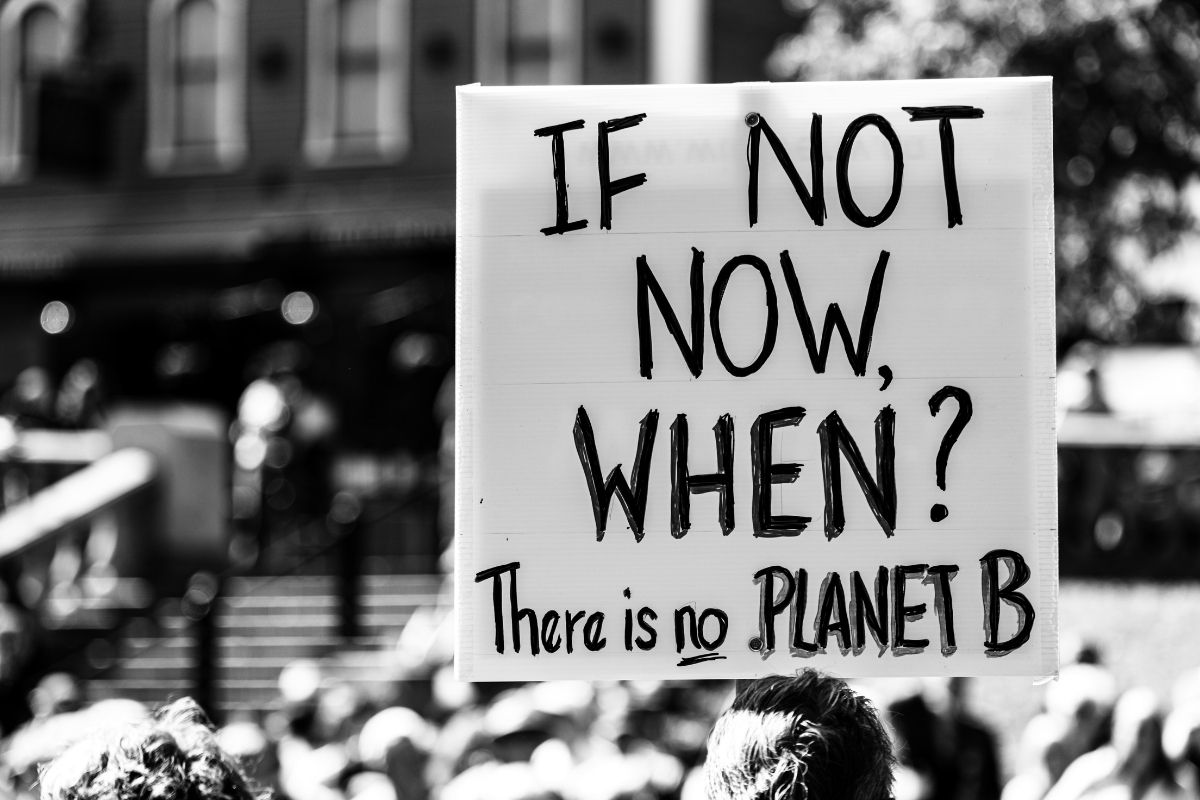by Priscilla Feral
“It’s now or never. Without immediate and deep emissions reductions across all sectors, it will be impossible to limit warming to 1.5°C or 2.0°C,” said Jim Skea, co-chair of the UN’s Intergovernmental Panel on Climate Change Working Group during a press conference in April 2022 about its latest climate crisis report.
The good news is the report underscores the world already has solutions for combatting global warming—such as ditching fossil fuels for renewable energy sources— if humans stopped letting politics get in the way.
Even better news is that politics can’t stop individuals from adopting a plant-based diet, which is one of the solutions to the climate crisis. And we couldn’t think of a better way to celebrate Earth Day on April 22.
You might be wondering why taking meat and animal products off your plate is a quick way to turn down the heat.
The bulk of human-induced climate change comes from carbon dioxide emissions, but methane makes up around 20% of global greenhouse gas emissions and is the second-biggest contributor to the climate crisis. The gas has more than 80 times the warming power of CO2 in the short term, and the first installment of the IPCC report published in 2021 found slashing methane emissions was one of the fastest ways to minimize temperature rise.
Methane emissions can come from leaky oil, gas and coal infrastructure and mines. They also come from landfill and agricultural practices — and from flatulent cows.
In addition to methane emissions, livestock production requires large amounts of forested land to be cleared to create space for grazing cattle or to grow animal feed, which causes further greenhouse gas emissions to be released.
“Animal agriculture not only emits 10 to 100 times more greenhouse gases per unit product than plant-based food, it also uses 10 to 100 times more land. So a shift toward more plant-based diets would reduce the pressure on land, meaning farming could be done in a more environmentally friendly way,” said Professor Pete Smith, author of the 2021 IPCC report and chair of plant and soil science at the University of Aberdeen.
It will take a revolution
Diets associated with the greatest reductions in greenhouse gas emissions and land use are vegan.
The revolution by which a collective decision is made to transition to a vegan diet necessitates engaging everyone: grass-fed meat-eaters; vegetarians, flexitarians, omnivores and protein zealot-carb-haters, who don’t always distinguish between simple carbs and beneficial complex ones.
We must include non-vegans in our lives and talk with them, not at them; dine with them and maybe even cook for them. Living in a vegan bubble won’t reach the masses, and it’s not changing a mind one meal at a time.
It’s mind-boggling that consumers are eating $3.3 billion dollars’ worth of vegan food, but we aren’t seeing a major spike in the vegan population. That’s because plant-based foods like the newfangled veggie burgers that have landed at fast-food chains are also targeted at omnivores. Brace yourselves: Meat eaters are consuming almost 90% of the Impossible Burger.
So how many vegans are there in the U.S.? A couple years ago Sentient Media put together a timeline tracking 24 surveys of vegans over the past 25 years. The result: Vegans are between 1% and 2% of the population.
However, more than a third of U.S. residents are trying to consume more plant-based foods, and that’s uplifting. Some of them are shy of the word “vegan.” They’re prompted by health, fear, compassion and environmental concerns.
They are empowered by the fact that each day of eating a plant-based diet saves 1,100 gallons of water, 45 pounds of grain, 30 square feet of forest, 20 pounds of CO2 and 1 animal’s life.
The number of vegans and vegetarians isn’t as important as recognizing the number of doomed animals who are still ending up in slaughterhouses despite the explosion of vegan products.
For sure, consumers are eating less meat, and most everyone says they oppose factory farming, yet 99% of U.S. farmed animals live on factory farms and spend their abbreviated lives in horrid conditions before being killed. And there’s no refuge in saying one buys organic or free-range egg, meat and dairy products, as slaughterhouses are the same for all.
As the research piles up there’s no denying that evolving into a vegan culture will help save the planet from climate disaster and will give animals the respect they deserve by not breeding them into existence to consume.
Every year I travel to a fitness resort in Mexico. During my second to last trip, I saw a friend who said spending a week with me there several years ago inspired him to become vegetarian.
He said I talked to him in a matter-of-fact way that emboldened his change and he appreciated that. He also said he was going home to become vegan despite his dependence on dairy.
This is the productive wave of vegan education that we hope continues to wash over the planet, on Earth Day, and every day.

